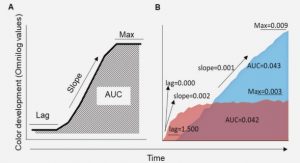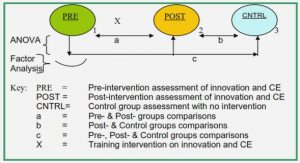Get Complete Project Material File(s) Now! »
Introduction
This chapter attempts to capture some of the salient discourses in the public domain, related to the implementation of HIV and AIDS policies in international development organisations such as the United Nations system. It has been structured to lead, in a later chapter, to the contextualisation of the findings of the study and to a discussion of the literature reviewed. The chapter explores, discusses and illustrates some of the views and perspectives related to HIV and AIDS policies in international development organisations.
The sociology of organisations and bureaucracy
This study is located within the formal organisational structure of an international development organisation. This sub-section of the review of literature focuses on exploring organisational theories that offer analysis of the functioning of bureaucracies. As Etzioni (1964) suggests, modern society is an organisationally structured construct. With growing social, economic and political demands, societies have become more and more complex: Organizations are social units which pursue specific goals; their raison d’etre is the service of these goals. But once formed, organizations acquire their own needs, these sometimes becoming the master of the organization‖ (Etzioni 1964: 5).
Weber’s contribution to organisational theory
Dating back to 1918, and the formation of the League of Nations as part of the Treaty of Versailles, and through the next few decades, the evolution of bureaucratic development organisations has run parallel to the development of organisational theory. The evolution has been mapped in various literatures, from Weber‘s organising principles (1968; 1978) to Etzioni Comparative Analysis of Complex Organizations 1961 to Silverman the Theory of Organizations 1970 (Donaldson 1988: 1-2 / 114). ―The origins of organization theory can [however] be traced largely to the appropriation of Weber‘s writings on bureaucracy‖ (Hancock & Tyler 2001: 65). In Morrison‘s (1995: 294) words: ―his [Weber‘s] discussion stands alone as an independent investigation into the historical
determinants of bureaucratic administration…
International development organisations
Scholars have traced the genesis of international organisations to numerous ancient leagues and assemblies that were aimed at warding off threats posed by formidable powers [such as the] cooperation among the lesser states confronting the imperial power of China and Rome‖ (Ziring, Riggs & Plano 2000: 4).
Chapter 1 – Problem, rationale and research concerns
1.1 Background and rationale for the study
1.2 HIV and AIDS and its socio-medical impact on everyday life
1.3 Conclusion
Chapter 2 – Literature survey: Organisations, bureaucracies and the rights based discourse on AIDS policies in the workplace
2.1 Introduction
2.2 The sociology of organisations and bureaucracy
2.3 Weber‘s contribution to organisational theory
2.4 International development organisations
2.5 International regimes: Legitimacies, values and inconsistencies
2.6 The United Nations as an international development organisation
2.7 AIDS in the United Nations system and the Human Rights discourse
2.8 The morality of managing the virus in the workplace
2.9 Interpretations guiding decisions of managers: Rational and reasonable options
2.10 Exploring possible reasons for slow policy implementation
2.11 Policies that guide the management of AIDS in the United Nations system
2.12 Conclusion
Chapter 3 – Research methodology and research questions
3.1 Introduction
3.2 Methodological approach
3.3 Data collection format
3.4 Interview sample
3.5 Data collection method and fieldwork practice
3.6 Interview approach
3.7 Interview setting
3.8 Key research questions
3.9 Data construction and analysis
3.10 Ethical considerations
3.11 Conclusion
Chapter 4 – Rubric of the argument: Analysis and reflection
4.1 Introduction
4.2 Manifestation of policy: Emerging dichotomies
4.3 Perceptions and expressions of power
4.4 Trust in the policy: A leap of faith
4.5 Organisational preparedness: Struggling to keep up with a galloping epidemic
4.6 Conclusion
Chapter 5 – Substantive findings and thoughts on implementation: Dichotomy between policy and practice
5.1 Introduction
5.2 Reflections on the rule book: Synergies and departures evidenced in the study
5.3 Key sociological insights
5.4 The road ahead: Thoughts on better implementing the mandate and principle of the United Nations HIV and AIDS policy
GET THE COMPLETE PROJECT
Unrealised obligations: Implementing HIV and AIDS policy in a large international development organisation A thesis submitted in partial fulfilment of the requirements of the degree of Doctorate of Philosophy (DPhil) in Sociology






